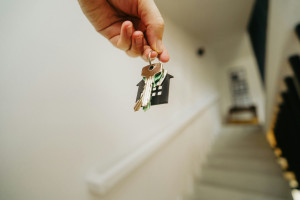The fitness industry in Australia has grown rapidly over the past decade, with gyms ranging from small boutique studios to large franchise operations. Buying a gym can seem attractive: recurring membership fees, opportunities for expansion, and the satisfaction of owning a health-focused business.
But like any business purchase, gyms come with risks. Lease issues, staff entitlements, compliance with workplace health and safety requirements, and hidden financial problems can turn what looks like a profitable business into a costly mistake.
This guide explains the process of buying a gym in NSW, the key legal and commercial considerations, and how proper due diligence can protect your investment.
1. Deciding on the Right Type of Gym
Not all gyms are the same. Some buyers are drawn to the stability of a large franchise gym, while others prefer independent studios focused on personal training, yoga, Pilates, or CrossFit. You should carefully consider:
Franchise vs. independent: A franchise may provide established systems and branding, but comes with franchise fees, strict operating requirements, and less flexibility.
Size and scale: Will you buy a small boutique space with limited members, or a larger facility with thousands of memberships?
Services offered: Some gyms rely mainly on 24/7 access memberships, while others generate income from personal training, group classes, or allied health services.
2. Business Structure – Asset Sale vs. Share Sale
When buying a gym, the transaction is usually structured as either an asset sale or a share sale:
Asset sale: You purchase the assets of the business – such as gym equipment, membership contracts, lease rights, and goodwill – but not the seller’s company. This is the most common structure, as it helps buyers avoid inheriting hidden debts or liabilities.
Share sale: You purchase the seller’s company and step into its shoes, taking on all assets and liabilities. This can simplify transfers of existing contracts but carries greater risk.
Even though a buyer may simply be buying the assets of the business and not the seller’s company, problems can still arise. For example, defective gym equipment, non-transferable supplier contracts, or unpaid staff entitlements can quickly create headaches if not identified in due diligence.
3. Financial Due Diligence
A gym’s income often comes from multiple sources, not just membership fees. Before committing to a purchase, you should examine:
Membership base: How many active members are there, and what is the churn rate? Are memberships locked into contracts, or are they casual and easy to cancel?
Revenue streams: Personal training sessions, group fitness classes, merchandise sales, or physiotherapy services may form part of the business model.
Debts and liabilities: Check for outstanding loans on equipment, unpaid tax obligations, or superannuation arrears.
Trends: Review historical financials to identify whether revenue is stable, growing, or declining.
4. Lease and Premises Issues
The premises is often critical to a gym’s success. Things to look out for include:
Lease term: Does the current lease have enough time remaining, or will you need to negotiate a renewal?
Zoning and approvals: Is the property approved for use as a gym? Local council requirements must be met.
Fit-out and condition: Gyms are equipment-heavy businesses. Check the condition of weights, cardio machines, and safety equipment, as replacement costs can be significant.
Car parking and accessibility: Sufficient parking and compliance with disability access laws are essential.
5. Employees and Contractors
Gyms often rely on a mix of permanent staff, casual employees, and independent contractors such as personal trainers. Employment issues to consider include:
Awards and entitlements: Gyms in Australia are generally covered by the Fitness Industry Award. Make sure staff have been paid correctly.
Superannuation and leave: Confirm that superannuation contributions and accrued leave entitlements are up to date.
Contractors: Many gyms use contractors to provide classes or personal training. Ensure contractor arrangements are legally compliant and not disguised employment.
6. Compliance and Risk Management
Operating a gym involves strict compliance obligations. Buyers should investigate:
Work health and safety (WHS): Gyms must meet safety standards for equipment, emergency procedures, and member safety.
Insurance: Public liability, workers compensation, and equipment insurance are essential.
Privacy obligations: Member data, health records, and payment details must be stored and handled in compliance with privacy laws.
Music licensing: If music is played in classes or on the gym floor, you may need licences from APRA AMCOS or PPCA.
7. Valuation Considerations
The value of a gym depends on several factors, including:
Strength and stability of the membership base
Diversity of revenue streams
Location and competition in the area
Lease terms and premises suitability
Brand reputation and online reviews
Professional valuations may use a multiple of earnings approach, but buyers should be cautious: a gym’s apparent profitability may be affected by seasonal fluctuations or temporary promotional deals.
8. The Purchase Process
The typical process for buying a gym in NSW includes:
Heads of Agreement: Outline the main terms, subject to due diligence.
Due Diligence: Review financial, legal, and operational aspects of the business.
Contract for Sale: Formal agreement setting out exactly what is being transferred, warranties from the seller, and any conditions.
Settlement: Transfer of purchase price, lease, equipment, and business records.
Transition period: The seller may stay on temporarily to assist with handover, especially in franchise or membership-based gyms.
9. How a Business Lawyer Can Help
Buying a gym is not just about checking the numbers. A business lawyer can:
Review the lease and ensure it allows for gym operations
Draft and negotiate the contract for sale
Ensure memberships and supplier contracts are transferable
Advise on employee and contractor obligations
Identify hidden risks through legal due diligence
Final Thoughts
A gym can be a rewarding investment, offering steady cash flow and growth opportunities. But without careful planning and legal advice, buyers risk taking on more than they bargained for.
If you are considering buying a gym in NSW, it is important to seek advice from an experienced business lawyer before signing any agreements. At Thornton + King, we regularly assist clients with business purchases, including gyms, franchises, and other service-based businesses.
FAQs
What should I look for when buying a gym in NSW?
There are many things to consider including due diligence on the membership base, lease terms, staff entitlements, equipment condition, and compliance with safety and licensing laws before you buy.
Is it better to buy a gym franchise or an independent gym?
A franchise offers brand recognition and systems, but comes with fees and restrictions. Independent gyms provide flexibility but rely more on your own marketing and management.
How much does a gym cost to buy in Sydney?
Prices vary depending on location, size, membership base, and profitability. Valuation usually considers recurring membership revenue, lease quality, and competition.
Do I need a lawyer to buy a gym?
A business lawyer can review the lease, contracts, staff entitlements, and ensure the sale agreement protects you from hidden risks, so it is definitely a good idea to get advice from an experienced business lawyer.
Buying a Business in NSW
If you're exploring the process of buying a gym in NSW, you may also find it helpful to read our related guides on purchasing different types of businesses. These resources cover the key legal, financial, and operational considerations involved in various industries:
Exploring these guides can help you gain a broader understanding of the different factors that apply when buying a business in New South Wales.












